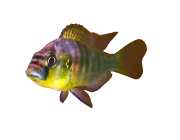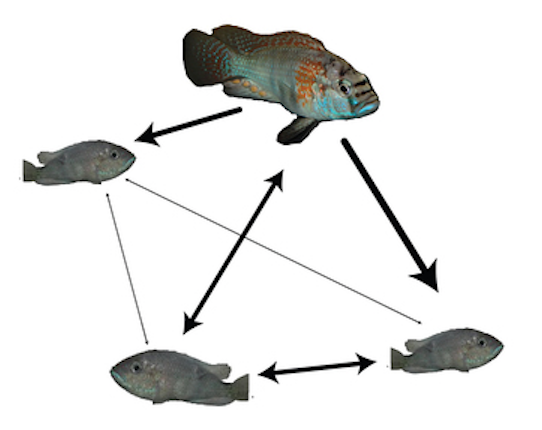Research in the Hofmann laboratory seeks to understand the molecular and hormonal mechanisms that underlie social behavior and its evolution. African cichlid fishes are an ideal system to address these questions because of their recent, repeated, and rapid radiations that resulted in hundreds of phenotypically diverse species. Our work uses a broad spectrum of approaches, ranging from ecological studies to functional genomics using next-gen sequencing for gene expression profiling in the brain. We also employ hormonal perturbations, neuroanatomical techniques, advanced microscopy, and bioinformatics tools.
A few current projects are listed below:
Research
Evolution of a Social Decision-Making Network
We have reconstructed the evolution of a neural social decision-making network across vertebrates and found that gene expression profiles in these behaviorally relevant brain regions are remarkably conserved. Our analysis suggests that the diversity of social behavior in vertebrates can be explained, in part, by variations on a theme of conserved neural and gene expression networks.
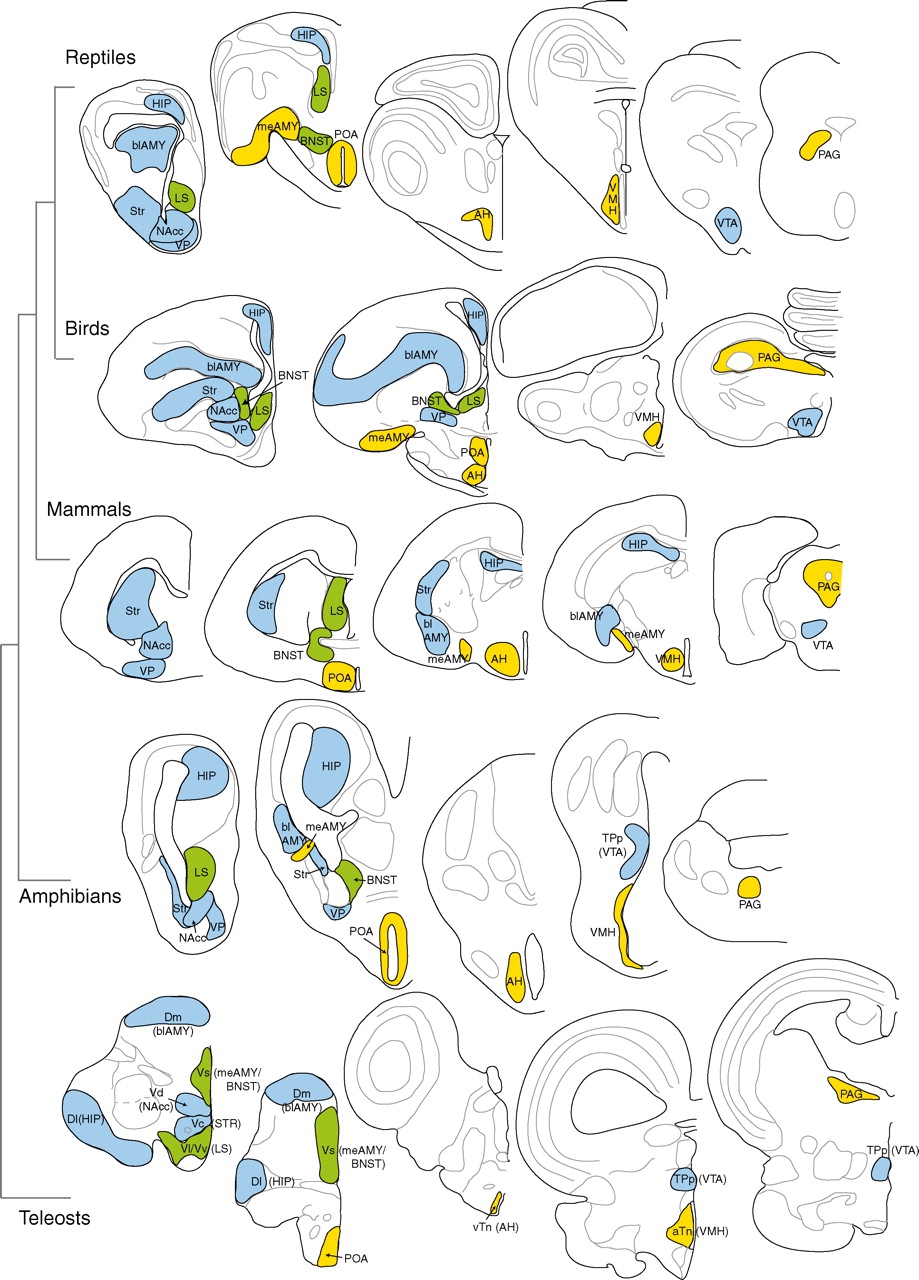
O'Connell and Hofmann (2012) Science
Evolution and Mechanisms of Mating Systems
In collaboration with Lauren O'Connell (Harvard) we use comparative RNA-seq and ChIP-seq to test the hypothesis that conserved gene networks govern mating system across vertebrates.
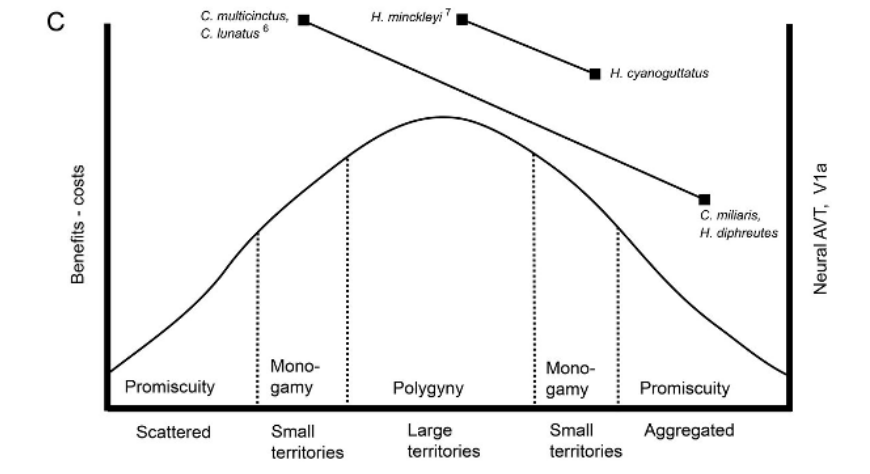
Oldfield et al. (2015) Frontiers in Zoology
Deciphering the Social Interactome
Progress has been made associating behavioral traits with genetic variation in the same individuals and their kin. However, it is much less clear how interactions with other individuals affect brain and behavior phenotypes. How does social status or personality of one individual affect the phenotype of others within the same social group? These Social Network Effects depend on the genotype and gene expression patterns of interacting individuals and occur via physiology and behavior in social situations. We are using A. burtoni to quantitatively analyze interactions between all individuals in a community at the level of behavior, circulating steroid hormones, and expression of sex steroid hormone receptors in the mesolimbic reward system.
Neural and Molecular Basis of Social Cognition
Individuals integrate information about their social and physical environment into adaptive behavioral responses, yet how the presence of different social partners and different sensory modalities contribute to these decisions and where in the brain this integration occurs is not well understood. We presented male cichlid fish with sensory information in three social contexts and measured behavioral and hormonal responses along with induction of the immediate early gene c-Fos in candidate forebrain regions. Our results suggest that different sensory cues are processed in a social context-specific manner as part of adaptive decision-making processes.
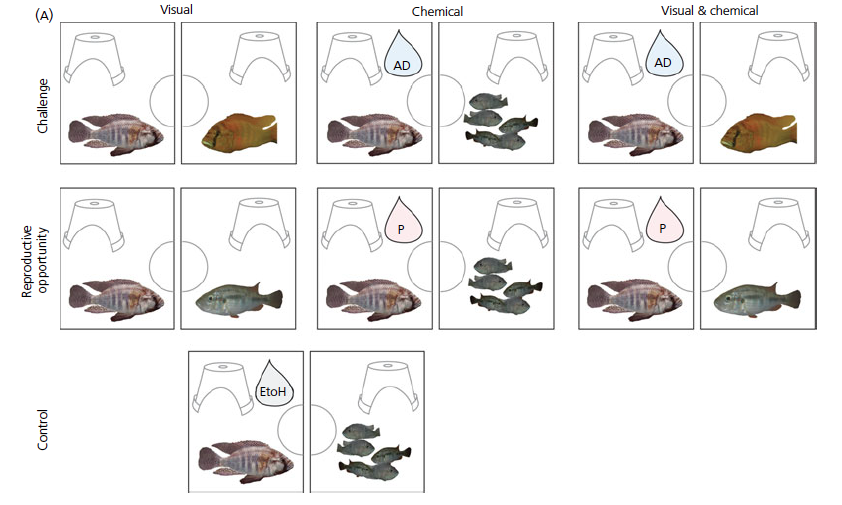
O'Connell et al. (2013) J. Neuroendocrinology
Neural and Molecular Basis of Female Mate Choice
Mate choice is fundamental to sexual selection, yet little is known about underlying physiological mechanisms that influence female mating decisions. We investigate the neuroendocrine underpinnings of female mate choice in A. burtoni, a non-seasonal breeder. In a two-way choice paradigm we found that non-reproductive females preferred to associate with smaller, less aggressive males over larger, more aggressive males; a preference that reverses on the day of spawning. We have also shown that the fatty acid derivative prostaglandin F2α (PGF2) plays an important role in the control of female reproductive behavior and interacts with male performance. We are now investigating the neural underpinnings of female mate choice.
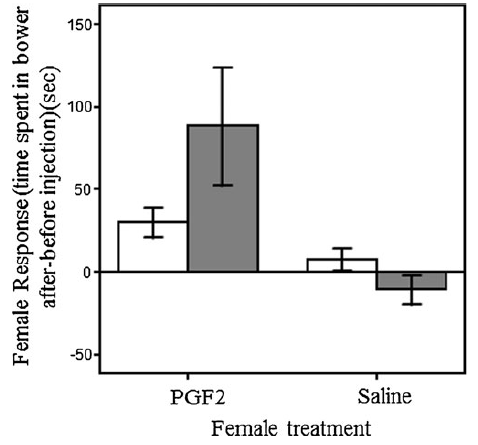
Kidd et al. (2013) Behavioral Ecology and Sociobiology
Neural and Molecular Basis of Alternative Reproductive Tactics
In collaboration with Suzanne Alonzo (Yale), we are documenting variation in gene expression and circulating hormone levels in the ocellated wrasse (Symphodus ocellatus), a species with three alternative male tactics (nesting, satellite, and sneaker males) that show discrete variation in reproductive behaviour (specifically spawning mode, and levels of cooperation, aggression, territoriality, and parental care). Our findings reveal possible bases in gene expression for the observed differences in behaviour, and suggest future avenues for physiological examination of cooperation and reproduction in this species.
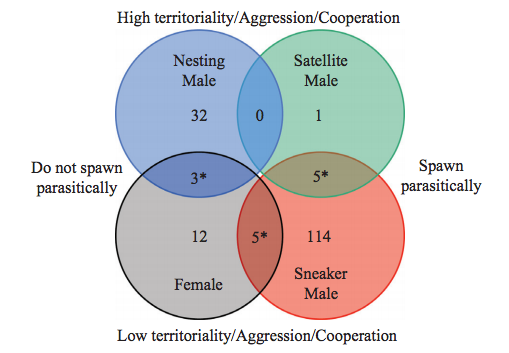
Stiver et al. (2015) Ethology
